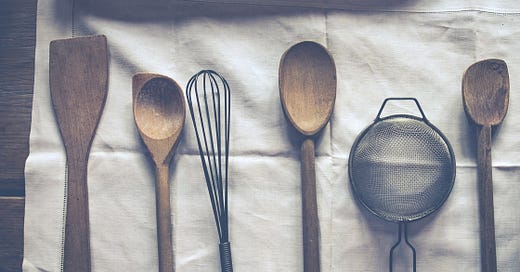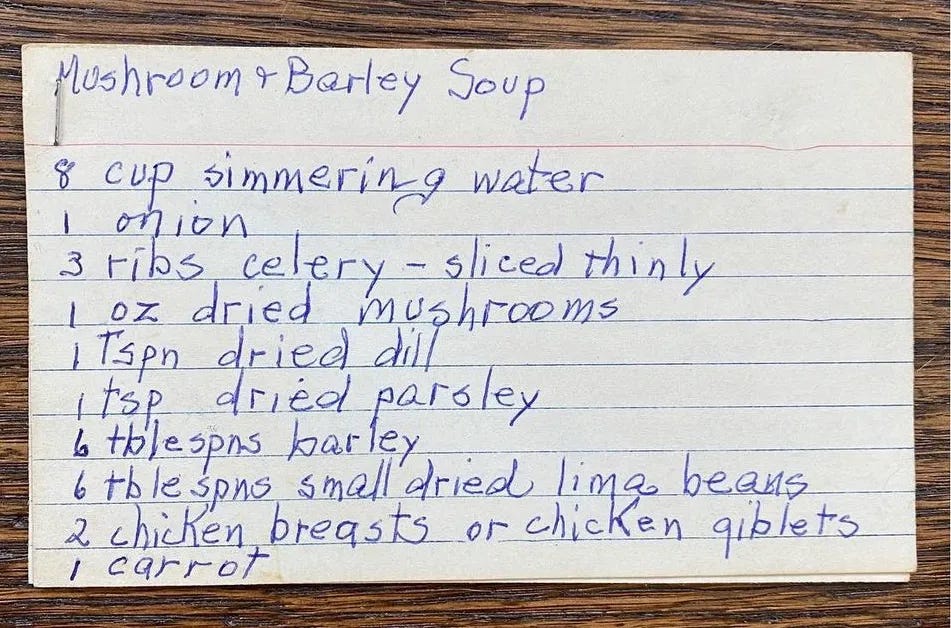Some time ago, a friend from college told me about a brisket that her mother used to make.
My friend visibly swooned as she talked about it — the buildup, the frantic shopping for the deckle, the preparation for cooking that involved her mother taking an old, bent Ginsu filet knife and making small, deep slits in the meat into which she would insert narrow slivers of garlic. One year, she added raisins and dill (her garden was still thriving) to the garlic. Another year, she included small slices of Jerusalem artichoke (which is never a good idea unless you’ve warned people ahead of time).
And every year, she cooked her brisket until it had the consistency of beef jerky.
This is the most exquisite brisket you’ve ever made, Mom, everyone would say in unison, sitting around the formal table and sawing at the meat in front of them. Then they’d put down the family silver and applaud. Mom would stand up and bow deeply from the waist, blush a deep crimson and insist that everybody have a second and third helping, because there was always so much left over. She’d proudly wrap up slices for everyone to take home, and after the meal was over and my friends’ sisters, brothers, nieces and nephews got into their cars, smiled and waved goodbye, they drove to the nearest dumpster and threw the brisket out because it was vile, inedible, and everyone hated it.
This went on for forty years.
I remember it so well, my friend said, smiling sadly and growing misty. She still has the Ginsu knife.
Of course it was memorable. But how could she swoon? Was it a good memory? Or was it a bad one? Was it the meat she was missing, or the whole event and the people involved in it, or was it just her mother? This is a universal conundrum: bad memories are inevitably married to good, the delicious is always somehow married to the stomach-turning. As Neruda says, the journeys go and come between honey and pain. You can’t have one without the other.
The past is also stuff; it masquerades as your mother’s muffin tin.
The past — memory — is everywhere we turn, right in front of us; it lives in the recesses of our brains and makes us who we are, even as our palates taste it and our brains contort it and make my experience different from yours, while the facts are identical. The past is also stuff; it masquerades as your mother’s muffin tin; the bags of photographs that you haven’t had the time or inclination to sort or frame, but that you’ve carried around with you for twenty-five years, moving from house to house and city to city. It’s people who no longer exist in your life — they’ve left the building in one way or another, like Elvis, disappearing, shrinking like a figure in a rear view mirror — but you vividly remember the density of their matzo balls, or the lightness of their pound cake, their sense of humor and their frightening temper, and the forty holidays you spent together. You remember the Swedish meatballs made with ketchup and cream that your grandmother used to cook for Thanksgiving and her leftover Easter ham salad tossed with the chopped sweet gherkins that no one but you ever really liked.
It’s the stained recipe cards written in ancient script that no one has been able to read for sixty years, that you cannot bring yourself to throw out even though the beloved great aunt who wrote them never tried to hide the fact that she didn’t like you, and even at five years old, you knew it. It’s the Passover Haggadah — the one you can’t manage to part with even though it’s splattered with heavy Malaga from the time your long-dead grandmother spilled her Waterford goblet while reaching across the table for the soup nuts. It’s the gaggle of stuffed miniature teddy bears dressed in bunny outfits that your mother found charming, and the four black and red Ukrainian Easter eggs that you meticulously hand-painted for her one Sunday afternoon in 1977 while listening to Patti Smith when, somehow, inexplicably, you managed to stay in the lines because you weren’t stoned.
Keep reading with a 7-day free trial
Subscribe to Poor Man's Feast to keep reading this post and get 7 days of free access to the full post archives.






